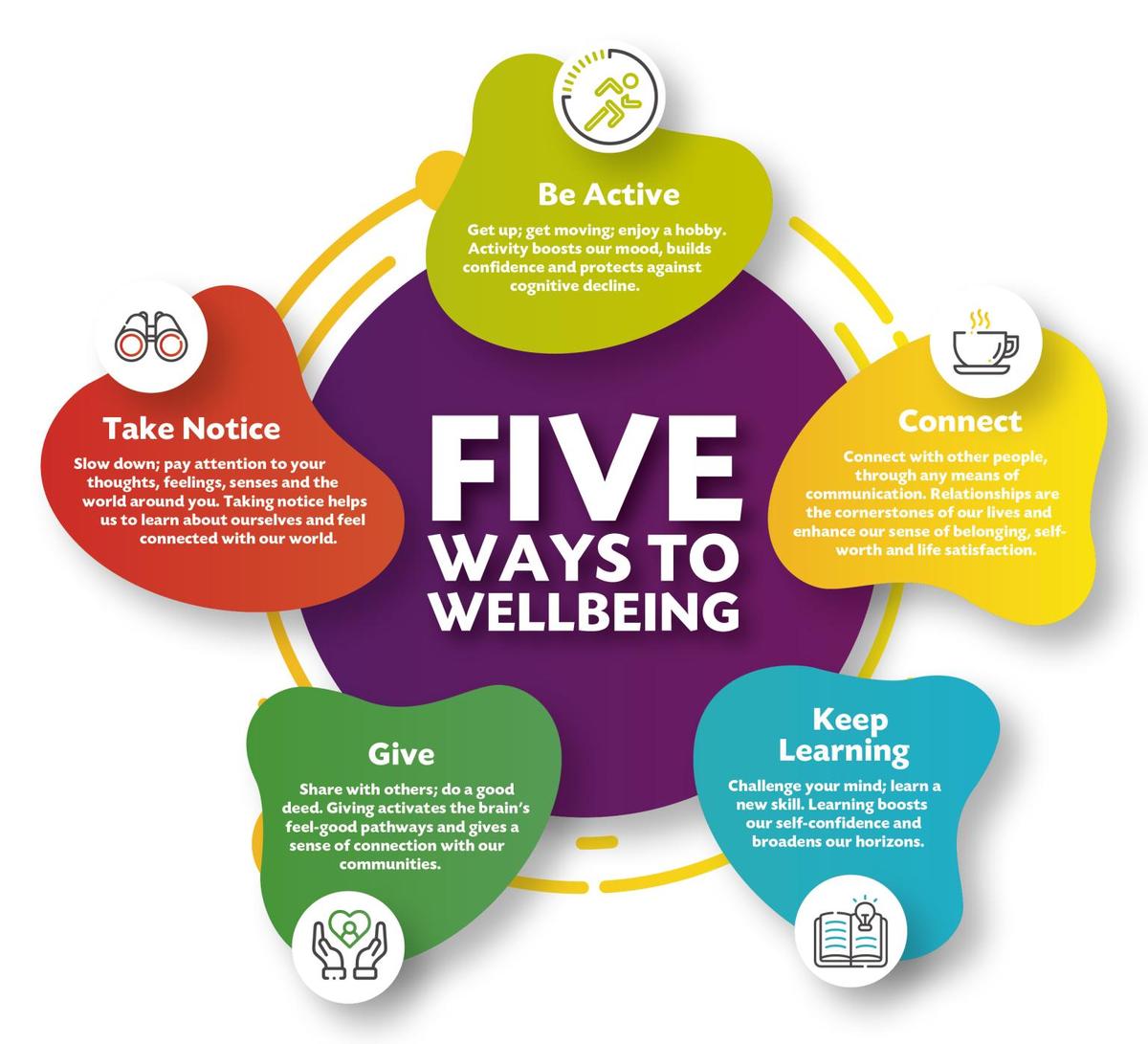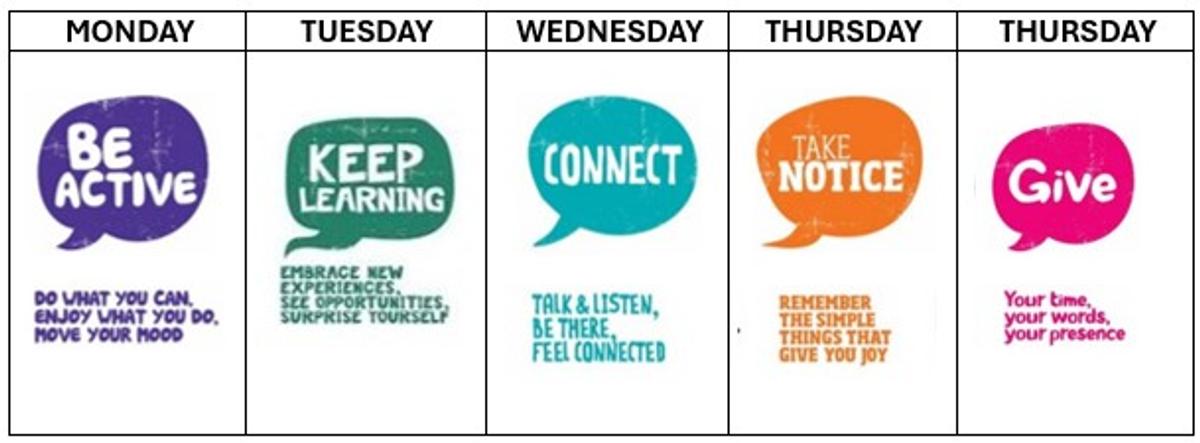From the Deputy Principal
Caroline Wilson-Haffenden

From the Deputy Principal
Caroline Wilson-Haffenden
In Week 8 (9–13 September), the College will celebrate Wellbeing Week using the 'Five Ways to Wellbeing': Connect, Be Active, Give, Take Notice and Keep Learning. Research shows these five things help to build resilience, boost wellbeing and lower the risk of developing mental health problems.
Why do the Five Ways to Wellbeing Work?


Connect: Strengthening relationships with others and feeling close to and valued by others is critical to boosting wellbeing.
Be Active: Being physically active improves physical health and can improve mood and wellbeing and decrease stress, depression and anxiety.
Give: Carrying out acts of kindness, whether small or large, can increase happiness, life satisfaction and general sense of wellbeing.
Take Notice: Paying more attention to the present moment, to thoughts and feelings and to the world around, boosts our wellbeing.
Keep Learning: Being curious and seeking out new experiences at school or work and in life more generally positively stimulates the brain.
The Year 12 Prefects, with backing from the Wellbeing Team, will dedicate each day to a particular action aimed at promoting wellbeing.


We look forward to sharing the highlights of Wellbeing Week in the next edition of The Fountain.
Additional resources:
5 Ways To Wellbeing - Five Ways To Wellbeing Australia | Home
Five ways to wellbeing | ReachOut Schools
As schools approach exam time, educators understand that academic success is deeply intertwined with the study habits students develop from an early age. Whilst educators strive to instil these habits within the classroom, the role of parents and carers in reinforcing them at home is equally critical. Healthy study habits not only improve a child’s ability to absorb and retain information but also help them manage stress, maintain focus and foster a lifelong love for learning.
It’s imperative that schools to work in partnership with parents and carers to ensure these habits are nurtured consistently, both at school and at home, building a strong foundation for children's learning and future academic challenges.


In today's world, where distractions are abundant and the pressure to excel is high, guiding children to develop healthy study habits is more important than ever. As students aspire to achieve academic success, the cornerstone of that achievement lies not just in their intelligence or drive, but in the study habits they cultivate.
It's essential for students to recognise that good study habits aren't merely about spending extra hours hitting the books. It's more about quality over quantity and having a more balanced approach. Emphasising the value of a routine is essential. Consistent study times establish a sense of structure and discipline, turning studying into a natural part of their daily routine rather than a burdensome task.
Additionally, how students approach their study sessions is equally important. Taking regular breaks is a crucial part of this process in maintaining focus and preventing burnout.
Maintaining a healthy lifestyle that includes sufficient sleep, a balanced diet and consistent physical activity are indispensable elements that will significantly impact your child's ability to study effectively. Fostering these healthy habits is one of the most valuable gifts we can offer children, paving the way for a lifetime of learning and achievement.
The Special Report will help you support your young person as they embark on studying for exams. Please find the link to your Special Report below.